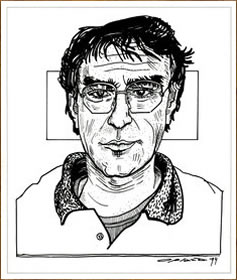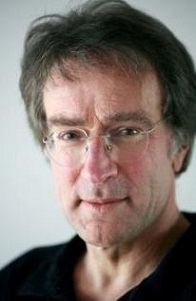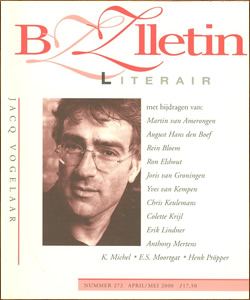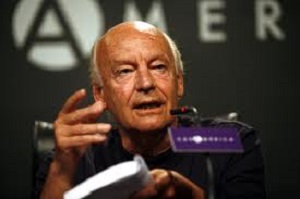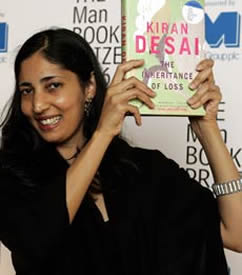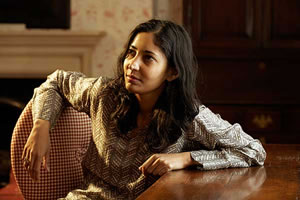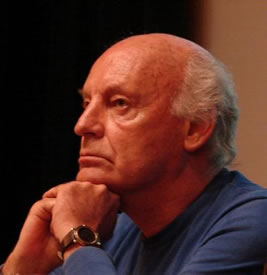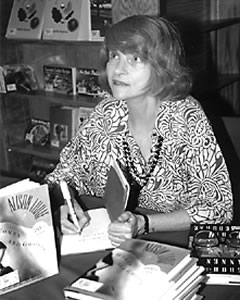Dolce far niente
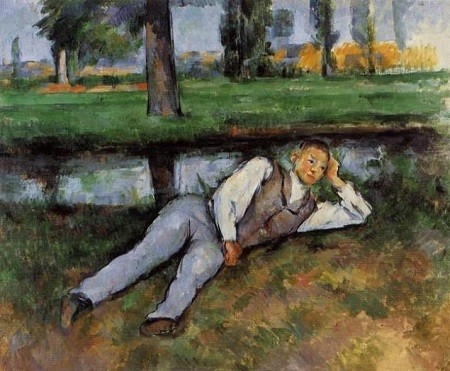
Rustende jongen door Paul Cezanne, 1890
Die Faulheit
Fleiß und Arbeit lob’ ich nicht.
Fleiß und Arbeit lob’ ein Bauer.
Ja, der Bauer selber spricht,
Fleiß und Arbeit wird ihm sauer.
Faul zu sein, sei meine Pflicht;
Diese Pflicht ermüdet nicht.
Bruder, lass das Buch voll Staub.
Willst du länger mit ihm wachen?
Morgen bist du selber Staub!
Lass uns faul in allen Sachen,
Nur nicht faul zu Lieb’ und Wein,
Nur nicht faul zur Faulheit sein.
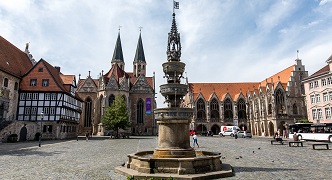
Gotthold Ephraim Lessing (22 januari 1729 – 15 februari 1781)
De markt in Braunschweig, de geboorteplaats van Gotthold Ephraim Lessing
De Nederlandse dichter, schrijver en literatuurcriticus Jacq Firmin Vogelaar (pseudoniem van Franciscus Wilhelmus Maria (Frans) Broers) werd geboren in Tilburg op 3 september 1944. Zie ook alle tags voorJacq Firmin Vogelaar op dit blog.
Of een slaapwandelaar slaapt?
Niet omdat het maandag is, het is bijna elke dag maandag.
Niet omdat het regent, het regent bijna altijd. Omdat je
weet dat de belangrijke handelingen die je leven veranderen
– lach niet, voordat je de hele zin gehoord hebt – meestal
buiten je om plaatsvinden (buiten je medeweten in je
eigen gebaren, woorden en bijgedachten voorbereid), beperk
je je tot het tijdrovend gemier op de vierkante millimeter.
Dus doe je maar wat je niet laten kunt slaapwandelaar, en
kijk je zonder deelnemen, met afkeer zelfs, toe (hoe:)
Het is maandag, het regent, de post heeft zojuist een
pakket bezorgd dat hij ongeopend op tafel laat liggen.
Op straat zijn twee mannen begonnen het trottoir open te
breken – je hebt niets gezien, je hoort het holle geluid
van op elkaar vallende tegels, je stelt het je voor (hoe:)
Hij verlaat het huis, zonder bagage; moet lang in de rij staan
voor het loket, bestelt een plaatsbewijs naar de stad die
hij het laatst hoort omroepen – Kopenhagen – betaalt met
een cheque. Je weet zeker dat niemand je daar zal staan
opwachten. Een grimmige herinnering van een kleine twintig
jaar geleden in je hoofd. Terwijl je een lege coupé zoekt,
besluit je de komende uren uitsluitend aan die ene dag van
die herinnering te denken om je hoofd vrij te houden van
alle andere herinneringen en voorstellingen. – Toen je
begon was je al onderweg – dat is een pijnlijke (halve)
waarheid.
Leven & zakenleven
Leven & zakenleven
’t kruim & uitschot van ’n uitgaanswereld
op hun ponteneur gesteld
marmeren handvaste bustes
geteelde beeldjes van onooglike debutantes
doorknede zwetsers & gesteven zwemvesten
die ’t voor ’t zeggen hebben (hoor ik)
bederven op slag in ’t verboden
blitzlicht van ’n vulgaire amateur-
fotograaf
(beelden ervan zijn later in ’t joernaal te zien
aanleiding tot ’n gewapende opstand van ouwe adel
+ ondergeschikten)
Terugkeer
Een man bij het tuinhek. Een man die thuishoort in de
grensstreek tussen licht en donker. Het grijs staat hem:
grijze ogen, grijs haar, grijze huid. Kleuren heeft hij
achter zich. Kleuren neemt hij in zich op en hult ze in
grijze gedachten. Vermoedelijk is hij iemand die houdt
van muziek zonder begin en eind.
Als hij nog langer, besluiteloos, bij het tuinhek blijft staan
wachten, zal de wind hem hebben weggevaagd, hem bij
zijns gelijken hebben gevoegd.
Stel dat ik het ben die achter het raam op de uitkijk
staat. Het nakijken heb ik. Zijn voorkant zilvergrijs
oplichtend in de zon, zweemt zijn achterkant naar verdwijnen.
Of andersom. Nog kan de man alle kanten uit.
Als hij weggaat zal ik snel mijn jas pakken en
hem achterna hollen (er is nog zoveel dat ik hem
hoognodig moet zeggen).
Als hij komt zal ik hem opwachten, maar niet als de man die
ik verwacht, nee, ik zal zeggen dat de persoon naar wie
hij vraagt ons niet bekend is, helaas.
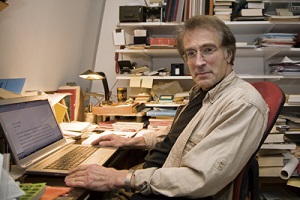
Jacq Firmin Vogelaar (3 september 1944 — 9 december 2013)
De Duitse schrijver, criticus, columnist, essayist en biograaf Fritz J. Raddatz werd geboren op 3 september 1931 in Berlijn. Zie ook alle tags voor Fritz J. Raddatz op dit blog.
Uit: Tagebücher
„20. Mai 1982
Dann « Textanalyse » – bizarrerweise anhand von WAR UM. Dann meine Lesung, ich spürte deutlich, wie sich Muschgs Gesicht verschattete. Hochhuth , der als rührender Kumpel dabei war, meinte – wie er mir am nächsten Tag am Telefon sagte –, das auch bemerkt zu haben ; da er wie alle Dramatiker das Böse im Menschen sieht und betont, meinte er nur: « Neid. » Wie immer – und das Abendessen in seinem ganz und gar gräßlichen, kleinstbürgerlichen Hause – Madame kredenzte mit einer Küchenschürze uns etwas Unbeschreibliches, was sie sehr lobte, dazu gab es süßen Wein, der dafür schön warm und wenig war – blieb eher verhangen im Gespräch, so daß ich gegen 23 Uhr verschwand. Den Abend zuvor, mit Hochhuth draußen in Paul Wunderlichs Lithoanstalt, so 80 km vor Zürich, weil dorten nemmlich Junterchen am Drucken war, und wir wollten in dem attachierten (SEHR guten) Gasthofe zusammen essen. Taten wir auch, und es war eigentlich ein netter Abend, nur daß Grass nicht aufhören wollte zu trinken (was mir neuerdings nicht mehr bekommt) und auch ganz herrschaftlich sagte (auf mein : « Ich möchte den Fahrer nicht so lange warten lassen ») : « Chauffeure sind das gewohnt. » Hm.
Kampen, den 28. Mai 1982
Was für eine sonderbare Woche wieder hinter mir liegt. Hier sitze ich nun in meinem geliebten Handschuhfach in Kampen, brennende Ginsterbüsche begrüßten mich, unvorstellbar schön,
die Bude renoviert, gereinigt, alles OK – eine neue Hausbesorgerin, selbst einen Masseur für/gegen meinen schlimmen Rükken scheine ich gefunden zu haben, perfektes Sylt-Wetter mit
Sonne, kühlendem Wind, jagenden Wolken, zum Abendessen von der Gänseleber mit frischen Feigen über den Spargel bis zur frischen roten Grütze ein « Dinner » ; und trotzdem bin ich
innen ganz kaputt. Ob meine Energie, die ich nicht recht loswerde, sich gegen mich selber richtet, mich sozusagen aushöhlt ?
Diese monologische Situation, die mich – der ich ja sehr auf Gespräche angelegt bin ; schon mein Kindermädchen brach in Tränen aus über mein « Geplapper » – zerstört ? Ich weiß es nicht – ich merke nur einen regelrechten physischen Verfall, weiche Knie, unsicheren Schritt, ständige kleine « Schrammen » und Beulen am Auto (ich bin in einem Zustand, daß ich eigentlich überhaupt nicht fahren dürfte), das rasende Kopfweh Tag und Nacht IST irgendwas und wird durch Massagen allein nicht weggehen.“
Fritz J. Raddatz (3 september 1931 – 26 februari 2015)
De Uruguayaanse schrijver, essayist en journalist Eduardo Hughes Galeano werd geboren op 3 september 1940 in Montevideo. Zie ook alle tags voor Eduardo Galeano op dit blog.
Uit: Days and Nights of Love and War (Vertaald door Judith Brister)
« In the torture chambers the torturers eat lunch in front of their victims. Children are interrogated as to the whereabouts of their parents: the parents are strung up and given electric shocks so they will reveal the location of their children. Daily news item: “Individuals in civilian attire, faces covered by black hoods … They arrived in four Ford Falcons … They were all heavily armed, with pistols, machine guns, and Itakas … The first police arrived an hour after the killings.” Prisoners, pulled out ofjail, die “attempt-ing to escape” in battles in which the army reports neither wounded nor killed on its side. Black humor in Buenos Aires: “Argentines,” they say, “can be divided into the terrorized, the imprisoned, the buried, and the exiled.” The death penalty was incorporated into the Penal Code in mid-1976, but each day people are killed in this country with benefit of neither trials nor tences. The majority are deaths without bodies. The Chilean dictator-ship has wasted no time in imitating this successful procedure. A single execution can unleash an international scandal: for thousands of disap-peared people, there is always the benefit of the doubt. As in Guatemala, frien ds and relatives make the useless, dangerous pilgrimage from prison to prison, from barracks to barracks, while the bodies rot in the bushes or dumps. The technique of the “disappeared”: there are no prisoners to claim nor martyrs to mourn. The earth devours the people and the government washes its hands. There are no crimes to denounce nor explanations to give. Each death dies over and over again until, finally, the only thing your soul retains is a mist of horror and uncertainty.
But Guatemala was the first Latin American laboratory in which the “dirtywar” was carried out on a large scale. Men trained, guided, and armed by the United States implemented the extermination plan. The year 1967 was a long St. Bartholomew’s Day massacre.’ The violence had begun in Guatemala ),tars before, when, one late afternoon in June 1954, Castillo Armas’ P-47s had filled the sky. Later the land was returned to the United Fruit Company and a new Petroleum Law, translated from the English, was passed. In Argentina, the Triple A (Argentine Anticommunist Alliance) made its public debut in 1973.”
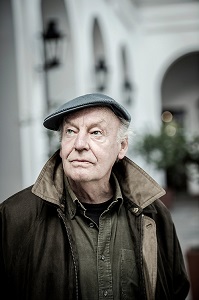
Eduardo Galeano (3 september 1940 – 13 april 2015)
De Amerikaanse schrijfster en literatuurwetenschapster Alison Lurie werd geboren op 3 september 1926 in Chicago, Illinois. Zie ook alle tags voor Alison Lurie op dit blog.
Uit: Foreign Affairs
“Twenty minutes ago, while waiting in the departure lounge in a cheerful mood, Vinnie read in a magazine of national circulation a scornful and disparaging reference to her life’s work. Projects such as hers, the article stated, are a prime example of the waste of public funds, the proliferation of petty and useless scholarship, and the general weakness and folly of the humanities in America today. Do we really need a scholarly study of playground doggerel? inquired the writer, one L. D. Zimmern, a professor of English at Columbia. No doubt Mr. or Ms. Miner would answer this query by assuring us of the social, historical, or literary value of “Ring-around-a-rosy,” he continued, sawing through the supports of any possible answer; but he, for one, was not convinced.
What makes this unprovoked attack especially hideous is that for over thirty years the Atlantic has been Vinnie’s favorite magazine. Though she was raised in the suburbs of New York and teaches at an upstate university, her imaginative loyalties are to New England. She has often thought that American culture took a long downward step when its hegemony passed from Boston to New York in the late nineteenth century; and it has been a comfort to her that the Atlantic continues to be edited from Back Bay. When she pictures her work receiving general public recognition, it is to this magazine that she awards the honor of discovery. She has fantasized the process often: the initial letter of inquiry, the respectfully eager manner of the interviewer, the title of the finished essay; the moment when her colleagues at Corinth University and elsewhere will open the magazine and see her name printed on its glossy pages in its characteristic and elegant typeface. (Vinnie’s ambition, though steady and ardent, is comparatively modest: it hasn’t occurred to her that her name might be printed upon the cover of the Atlantic.) She has imagined all that will follow: the sudden delighted smiles of her friends; the graceless grins of those who are not her friends and have undervalued both her and her subject. The latter group, alas, will be much more numerous.
For the truth is that children’s literature is a poor relation in her department—indeed, in most English departments: a stepdaughter grudgingly tolerated because, as in the old tales, her words are glittering jewels of a sort that attract large if not equally brilliant masses of undergraduates. Within the departmental family she sits in the chimney-corner, while her idle, ugly siblings dine at the chairman’s table—though, to judge by enrollment figures, many of them must spout toads and lizards.”
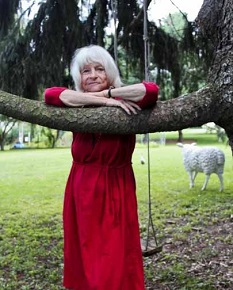
Alison Lurie (Chigaco, 3 september 1926)
Cover
De Russische schrijver Sergej Dovlatov werd geboren op 3 september 1941 in Ufa, in het zuiden van Rusland. Zie ook alle tags voor Sergej Dovlatov op dit blog.
Uit: Pushkin Hills (Vertaald door Katherine Dovlatov)
“These are just words. Never-ending, beautiful words… I’ve had enough… I have a child for whom I’m responsible…”
“I have a child, too.”
“Whom you ignore for months on end. We are strangers to you…” (In conversations with women there is one painful moment. You use facts, reasoning, arguments, you appeal to logic and common sense. And then suddenly you discover that she cannot stand the very sound of your voice…) “Intentionally,” I said, “I never did any harm…”
I sat down on a sloping bench, pulled out a pen and a piece of paper, and a minute later scribbled down:
My darling, I’m in Pushkin Hills now,
Monotony and boredom without a switch,
I wander through the grounds like a bitch,
And fear is wracking my very soul!
And so on.
My verses had somewhat preceded reality. We still had about a hundred kilometres to Pushkin Hills.
I stopped by a convenience store and bought an envelope that had Magellan’s portrait on it. And asked, for some reason:
“Do you know what Magellan has to do with anything?”
The sales clerk replied pensively:
“Maybe he died… Or got decorated…”
I licked the stamp, sealed the envelope and dropped it in the mailbox…
At six we reached the tourist centre. Before that there were hills, a river, the sweeping horizon with a jagged trim of forest. All in all, a typical Russian landscape without excess. Just those ordinary features that evoke an inexplicably bittersweet feeling.”
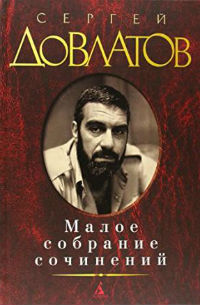
Sergej Dovlatov (3 september 1941 – 24 augustus 1990)
Cover
De Indische schrijfster Kiran Desai werd geboren op 3 september 1971 in New Dehli. Zie ook alle tags voor Kiran Desai op dit blog.
Uit: The Inheritance of Loss
“They had come for the judge’s hunting rifles.
Despite their mission and their clothes, they were unconvincing. The oldest of them looked under twenty, and at one yelp from Mutt, they screamed like a bunch of schoolgirls, retreated down the steps to cower behind the bushes blurred by mist. “Does she bite, Uncle? My God!”— shivering there in their camouflage.
Mutt began to do what she always did when she met strangers: she turned a furiously wagging bottom to the intruders and looked around from behind, smiling, conveying both shyness and hope.
Hating to see her degrade herself thus, the judge reached for her, whereupon she buried her nose in his arms.
The boys came back up the steps, embarrassed, and the judge became conscious of the fact that this embarrassment was dangerous for had the boys projected unwavering confidence, they might have been less inclined to flex their muscles.
The one with the rifle said something the judge could not understand.
“No Nepali?” he spat, his lips sneering to show what he thought of that, but he continued in Hindi. “Guns?”
“We have no guns here.”
“Get them.”
“You must be misinformed.”
“Never mind with all this nakhra. Get them.”
“I order you,” said the judge, “to leave my property at once.” “Bring the weapons.”
“I will call the police.”
This was a ridiculous threat as there was no telephone.
They laughed a movie laugh, and then, also as if in a movie, the boy with the rifle pointed his gun at Mutt. “Go on, get them, or we will kill the dog first and you second, cook third, ladies last,” he said, smiling at Sai.
“I’ll get them,” she said in terror and overturned the tea tray as she went.
The judge sat with Mutt in his lap. The guns dated from his days in the Indian Civil Service. A BSA five-shot barrel pump gun, a .30 Springfield rifle, and a double-barreled rifle, Holland & Holland. They weren’t even locked away: they were mounted at the end of the hall above a dusty row of painted green and brown duck decoys.
“Chtch, all rusted. Why don’t you take care of them?” But they were pleased and their bravado bloomed. “We will join you for tea.“

Kiran Desai (New Dehli, 3 september 1971)
Cover
Onafhankelijk van geboortedata:
De Turks-Duitse schrijver Doğan Akhanlı werd geboren in 1957 in Şavşat in de provincie Artvin in het noordoosten van Turkije. Zie ook alle tags voor Doğan Akhanlı op dit blog.
Uit: Mein Vater nannte mich “Ford”
„In meinem Geburtsdorf auf der türkischen Seite der georgischen Grenze, hatte Mitte der 1960er Jahre jeder Mensch einen Spitznamen. Ich hatte mehrere: Meine Geschwister nannten mich „Pot“, die Dorfkinder „Schmetterling“ („Pepela“ georgisch) oder „Eichhörnchen“ („Tatarzena“ polnisch) und für meinen Vater war ich nur „Ford.“ Sehr gerne hätte ich ihn gefragt, warum er mich „Ford“ nannte.
Vermutlich besuchte ich gerade die Dorfgrundschule, als die Auswanderung in die Fremde, gurbet, begann. Mein Vater war der erste und lange Zeit der einzige Lehrer im Dorf. Außer ihm lebte noch ein Erzieher in unserem Dorf, der während seines Militärdienstes Lesen, Schreiben und etwas Mathe gelernt hatte. Dieser war für die erste Klasse zuständig. Mein Vater unterrichtete vier Klassen in einem einzigen Klassenraum, eine Art Montessoripädagogik gemäß dem Motto „Hilf mir, es selbst zu tun“. Allerdings gab es unter den damaligen Bedingungen sowieso weder Platz noch Mittel für eine andere Pädagogik: Wir hatten lediglich ein Heft zum Schreiben, ein anderes für Mathe, einen Bleistift und einen Radiergummi dazu.
Gemäß der Staatsdoktrin sollte der Lehrer uns die fortgeschrittene, zivilisierte westliche Welt nahebringen. Und da Frankreich als Land der Hochkultur galt, sollte Französisch die schönste Sprache, Paris die schönste Stadt und Viktor Hugo der beste Schriftsteller sein. Rückblickend würde ich behaupten, dass es dem Lehrer immerhin gelang, uns den „Glöckner von Notre-Dame“, der Esmeralda zu Kirchenasyl verhalf, so berauschend wiederzugeben, dass ich als kleiner Junge bei Nacht den Eiffelturm vor Augen hatte und bei Tag Notre- Dame und die Seine, wie sie zwischen Häusern, Bäumen und Feldern dahinströmte.
Deutschland tauchte in den Erzählungen immer dann auf, wenn es um „Ehrlichkeit“, Fleiß“, „Zuverlässigkeit“ und „technischen Fortschritt“ ging.“

Doğan Akhanlı (Şavşat, 1957)
Zie voor nog meer schrijvers van de 3e september ook mijn blog van 3 september 2017.


